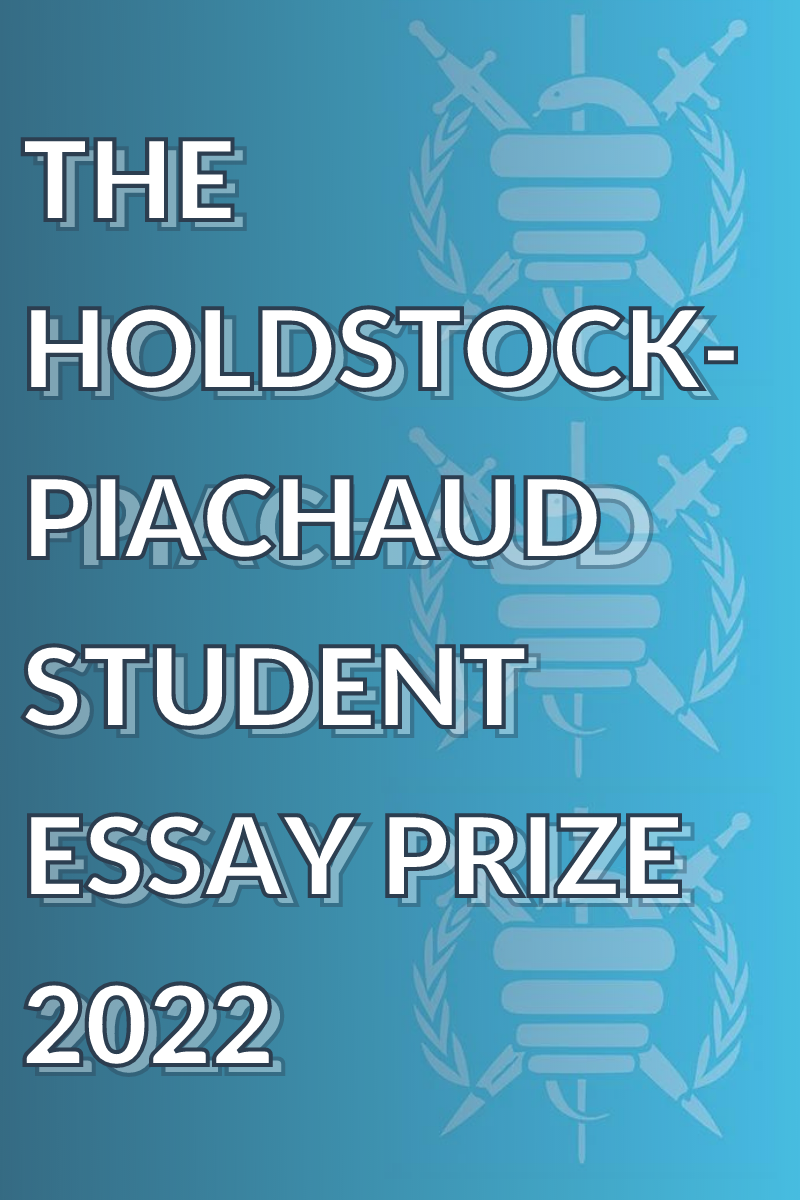
About the prize
The Holdstock-Piachaud Essay Prize was set up to encourage students to explore the themes covered by the journal Medicine, Conflict and Survival, in memory of Douglas Holdstock and Jack Piachaud who were for many years inspirational editors of the Journal.
We are keen to receive essays that explore insights, concerns and original perspectives on issues relevant to the aims of the journal, from students who will be shaping the future. We encourage you to base your argument on relevant literature and to develop it drawing on your own experience and reflections.
The Holdstock-Piachaud Prize is made possible through the generosity of the Lionel Penrose Trust.
Read this blog post with previous winners’ reflections.
Medicine, Conflict and Survival is an international journal for all those interested in the health aspects of violence and human rights. Founded in 1985 it is a designated journal of IPPNW and Medact. Published quarterly by Taylor and Francis/Routledge, the Journal plays an important role in debates around health, peace and violence.
To get an application form and for answers to any queries, contact: [email protected]
Prizes
Winning entries may be selected by the editors for publication in MCS.
First prize of £500
Three second prizes of £300 each
Winners will also receive a year’s subscription to MCS.
Competition details
Closing date: 17.00 on January 31st, 2022.
Open to all students, including those completing their studies in 2021.
Word limit: 2500
Essays should be submitted in Word.
Essays should be fully referenced, using the Chicago Author-Date system.
Entries must not have been previously published elsewhere.
Entries are judged by members of the MCS editorial board and the Medact board.
Titles for the 2022 Holdstock-Piachaud student essay prize
1.
The global response to the COVID-19 pandemic has been characterized by a proliferation of misinformation about the virus, the vaccines, and mitigating public health measures. This is not a new phenomenon: there have been similar reactions to earlier public health crises.
Has the popular reaction to COVID-19 and to ways of combatting it been influenced by the misinformation associated with earlier pandemics, from C17 onwards?
Focusing on two of these, are there lessons from them in how to restore or develop faith in science and health professionals?
2.
As the rich nations are showing moral failure over the equitable distribution of vaccines for COVID-19, how can similar failure be avoided when facing the crisis of global warming? Will the COP 26 resolutions help ensure equity in the distribution of resources needed to combat climate change?
3.
The risks of nuclear annihilation appear to have been overtaken in the minds of the public by those of climate catastrophe and/or uncontrollable viruses. Will the implementation of the Treaty on the Prohibition of Nuclear Weapons redress the balance?
4.
In what ways are the internet and social media helping to spread equitable health care worldwide and in what ways are they hindering it? How can the beneficial effects be extended and the harmful ones controlled?
5.
A letter in the Lancet of June 2020¹ claimed the COVID-19 pandemic teaches lessons we must embrace to overcome two additional existential threats: nuclear war and global warming. What lessons can we learn from the global response to COVID-19 that could help the world address future threats such as climate change or the proliferation of nuclear weapons?